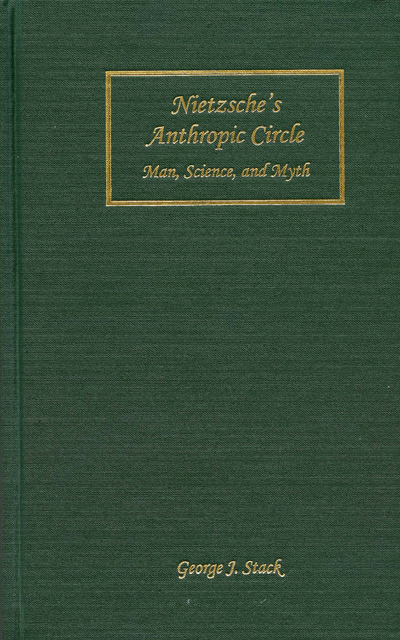Book contents
- Frontmatter
- Dedication
- Contents
- Preface
- Editions and Abbreviations
- 1 Anthropomorphic Projection
- 2 Agnosticism
- 3 A Dynamic Theory of Nature
- 4 Perspectivalism: Knowledge/Interpretation
- 5 Fictionalism in Science
- 6 The Structuralist Perspective
- 7 Evolutionary Epistemology
- 8 Tragic Knowledge and a Will-to-Power Psychology
- 9 The Cosmic Will to Power as Fable
- Notes
- Selected Bibliography
- Index
5 - Fictionalism in Science
Published online by Cambridge University Press: 23 March 2023
- Frontmatter
- Dedication
- Contents
- Preface
- Editions and Abbreviations
- 1 Anthropomorphic Projection
- 2 Agnosticism
- 3 A Dynamic Theory of Nature
- 4 Perspectivalism: Knowledge/Interpretation
- 5 Fictionalism in Science
- 6 The Structuralist Perspective
- 7 Evolutionary Epistemology
- 8 Tragic Knowledge and a Will-to-Power Psychology
- 9 The Cosmic Will to Power as Fable
- Notes
- Selected Bibliography
- Index
Summary
Theories are our own inventions, our own ideas; they are not forced upon us, but are our self-made instruments of thought.
Karl Popper, Conjectures and Refutations.Our concepts are inventions.
Nietzsche, NachlassNietzsche's theory of the fictional nature of logic, scientific concepts and principles, and philosophical categories has rarely been discussed in detail. My concern here is to elucidate the instrumental theory of fictions in his thought and the role it plays in his critical analysis of knowledge. I will also briefly analyze some of the negative consequences of this general theory for his own thought.
One of Nietzsche's fundamental claims is that our senses, concepts, psychology, and language contribute to the simplification of phenomena and what we come to know and construct as our “world.” The intellect is thought of as an instrument, the primary function of which is the organization and simplification of a presumed flux or an ostensible “chaos of representations.” Reason and intellect are in the service of life and their functions serve to construct a “world” in which we can act effectively, in which our various “needs” and “drives” are satisfied. Our sensory modalities are selective and conditioned by interest, need, and serviceability. They exclude extraneous detail and, as a result of a long evolutionary process, have developed a precision that is adequate to the preservation needs of the species. We are able to perceive only what is useful for us, only up to the point beyond which our sensory system would be overwhelmed by stimuli. Because of the inherited, acquired, and contemporary psychic factors that enter into our sensory awareness, there is no such thing as “immaculate perception.” Perception is pervaded by interest and is value-laden.
Nietzsche's conception of the threshold of our modalities of sense is compatible with recent studies on the psychology of consciousness. Our consciousness is “outward-oriented” and concerned primarily with action; the primary function of sensory awareness is “biological survival.” The mass of stimuli that bombard our senses must be selectively limited by a process of “multilevel … filtration.” This “filtered input” is, then, the basis for our “construction” of our immediate environment. The content of sensory experience is processed in relation to needs, interest, and, ultimately, survival. Furthermore, it is plausibly assumed that our mode of sensory awareness “is only one possible consciousness.”
- Type
- Chapter
- Information
- Nietzsche's Anthropic CircleMan, Science, and Myth, pp. 103 - 121Publisher: Boydell & BrewerPrint publication year: 2005

